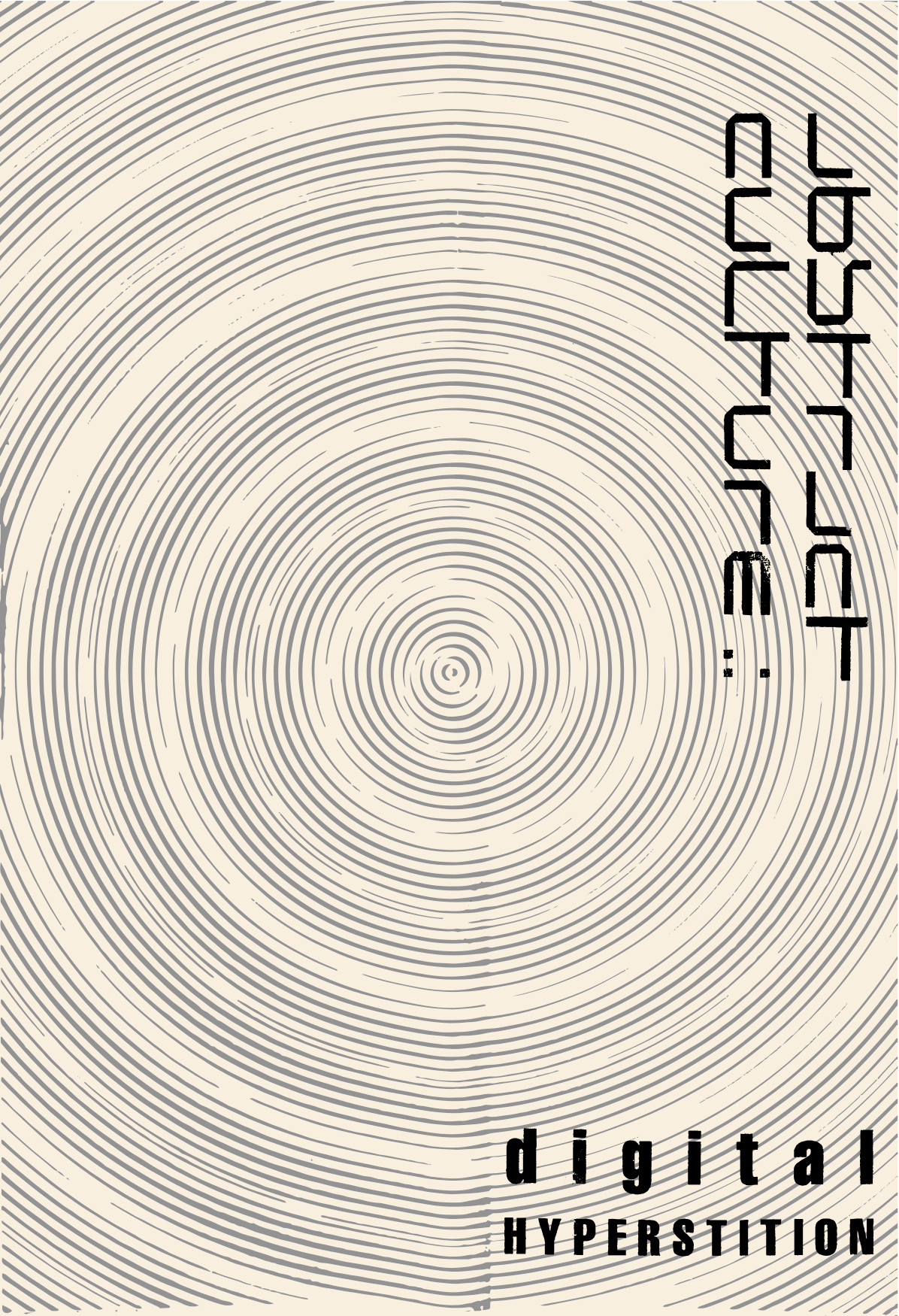CCRU: Abstract Culture, 4: Digital Hyperstition (1999)
Filed under book | Tags: · mysticism, theory

“Digital Hyperstition is the Cybernetic Culture Research Unit’s definitive work of indisciplinary microcultural agitation. This explosive document brings together recovered hyperstitional episodes reported by Melanie Newton, Echidna Stillwell, and other students and victims of Lemurian time sorcery, with texts on popular numerics, afromathematics, polyrhythmic aquassassination, and Y2K panic. Also contains a presentation of Pandemonium, the complete system of time sorcery, authoritative rules for the games of Decadence and Subdecadence, and an invaluable CCRU glossary.”
Publisher CCRU, London, 1999
74 pages
Reprint (2017)
PDF (14 MB)
HTML (use menu at the bottom right)
Kasper Opstrup: The Way Out: Invisible Insurrections and Radical Imaginaries in the UK Underground, 1961-1991 (2017)
Filed under book | Tags: · 1960s, 1970s, 1980s, aesthetics, avant-garde, counterculture, cultural history, education, london, mysticism, politics, protest, social movements, united kingdom

“A counterculture history of art and experimental politics that turns the world inside out
The Way Out examines the radical political and hedonist imaginaries of the experimental fringes of the UK Underground from 1961 to 1991. By examining the relations between collective and collaborative practices with an explicit agenda of cultural revolution, Kasper Opstrup charts a hidden history of experiments with cultural engineering, expanding current discussions of art, medias, politics, radical education and the occult revival. Even though the theatres of operation have changed with the rise of the Internet and a globalised finance economy, these imaginaries still raise questions that speak directly to the present.
Here we encounter a series of figures – including Alexander Trocchi, R. D. Laing, Joseph Berke, Brion Gysin, William Burroughs and Genesis P-Orridge – that blurred the lines between inner and outer, the invisible and the material. Four singular forms of speculative techniques for igniting an invisible insurrection with cultural means make up the central case studies: the sigma project, London Anti-University, Academy 23 and thee Temple ov Psychick Youth.
Contained within these imaginaries is a new type of action university: a communal affair that would improvise a new type of social relation into existence by de-programming and de-conditioning us without any blueprints for the future besides to make it happen. Instead of being turned upside down, the world was to be changed from the inside out.”
Publisher Minor Compositions, Wivenhoe, 2017
ISBN 9781570273285
252 pages
Alexander R. Galloway, Eugene Thacker, McKenzie Wark: Excommunication: Three Inquiries in Media and Mediation (2013)
Filed under book | Tags: · communication, horror, media, media theory, mediation, mysticism, mythology, networks, queer theory, theory

“Always connect—that is the imperative of today’s media. But what about those moments when media cease to function properly, when messages go beyond the sender and receiver to become excluded from the world of communication itself—those messages that state: “There will be no more messages”? In this book, Alexander R. Galloway, Eugene Thacker, and McKenzie Wark argue that these moments reveal the ways the impossibility of communication is integral to communication itself—instances they call excommunication.
In three linked essays, Excommunication pursues this elusive topic by looking at mediation in the face of banishment, exclusion, and heresy, and by contemplating the possibilities of communication with the great beyond. First, Galloway proposes an original theory of mediation based on classical literature and philosophy, using Hermes, Iris, and the Furies to map out three of the most prevalent modes of mediation today—mediation as exchange, as illumination, and as network. Then, Thacker goes beyond Galloway’s classification scheme by examining the concept of excommunication through the secret link between the modern horror genre and medieval mysticism. Charting a trajectory of examples from H. P. Lovecraft to Meister Eckhart, Thacker explores those instances when one communicates or connects with the inaccessible, dubbing such modes of mediation “haunted” or “weird” to underscore their inaccessibility. Finally, Wark evokes the poetics of the infuriated swarm as a queer politics of heresy that deviates from both media theory and the traditional left. He posits a critical theory that celebrates heresy and that is distinct from those that now venerate Saint Paul.
Reexamining commonplace definitions of media, mediation, and communication, Excommunication offers a glimpse into the realm of the nonhuman to find a theory of mediation adequate to our present condition.”
Publisher University of Chicago Press, 2013
TRIOS series
ISBN 0226925226, 9780226925226
210 pages
Reviews: Daniel Colucciello Barber (Parrhesia, 2014), Jay Murphy (Afterimage, 2014), Geert Lovink (e-flux, 2014, Wark’s response), Aleksandra Kaminska (Reviews in Cultural Theory, 2015), Marco Deseriis (Culture Machine, 2015).
PDF (updated on 2019-11-20)
Comment (0)
